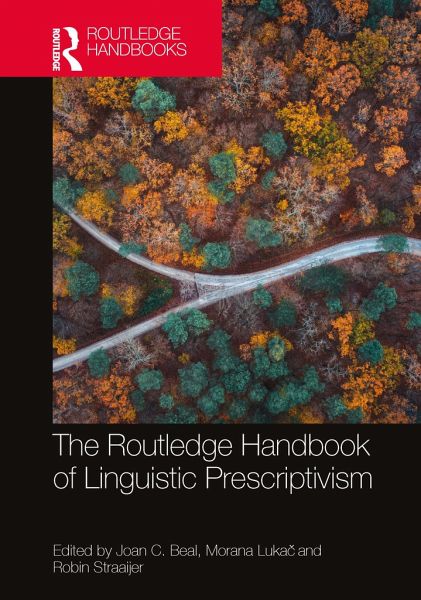
The Routledge Handbook of Linguistic Prescriptivism
Versandkostenfrei!
Versandfertig in 1-2 Wochen
234,99 €
inkl. MwSt.
Weitere Ausgaben:

PAYBACK Punkte
117 °P sammeln!
This Handbook provides a comprehensive and cutting-edge overview of the field of linguistic prescriptivism. Mapping the current status quo of the field and marking its two-decade transformation into a serious field of study within linguistics, this volume addresses both the value and the methods of studying prescriptivism. It covers: ¿ Theoretical and methodological approaches - from historical to experimental approaches and including corpus-based methods and attitudes research; ¿ Contexts in which prescriptive efforts can be both observed and studied - including education, technology, the m...
This Handbook provides a comprehensive and cutting-edge overview of the field of linguistic prescriptivism. Mapping the current status quo of the field and marking its two-decade transformation into a serious field of study within linguistics, this volume addresses both the value and the methods of studying prescriptivism. It covers: ¿ Theoretical and methodological approaches - from historical to experimental approaches and including corpus-based methods and attitudes research; ¿ Contexts in which prescriptive efforts can be both observed and studied - including education, technology, the media, language planning and policies, and everyday grassroots practices; ¿ Geographical contexts of prescriptivism - featuring chapters on inner- and outer-circle Englishes, English as a Lingua Franca, as well as prescriptivism in the context of other world languages including minority and endangered languages. With contributions from an international line-up of leading and rising-star scholars in the field, The Routledge Handbook of Linguistic Prescriptivism marks the evolution of linguistics as a fully self- aware discipline and will be an indispensable guide for students and researchers in this area.













